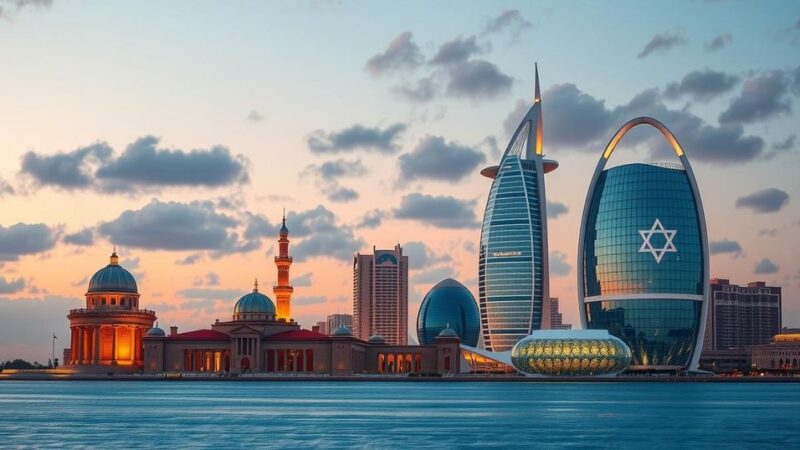The M23 insurgency in eastern Congo is intensifying, echoing a previous offensive in 2012 as they advance towards Goma. Global powers express concern over Rwanda’s involvement but lack significant actions to counter it. The situation is compounded by geopolitical distractions and a weakened Congolese government. Analysts stress the urgency of addressing this crisis as it exacerbates the humanitarian plight in the region.
The resurgence of the Rwandan-backed M23 insurgency in eastern Congo has led to escalating fears among residents, particularly as they witness M23 fighters advancing towards Goma. Colleta Nzambonimpa, reflecting the anxiety of many, expressed her hope for the defeat of the rebels while attending church. The situation mirrors the 2012 conflict when M23 temporarily seized Goma, yet the current dynamics, involving greater reluctance from world powers to confront Rwanda, suggest a more complex scenario ahead.
M23’s recent territorial gains, particularly in North Kivu province, have intensified an already dire humanitarian crisis, as the group seizes control of lucrative mineral resources. Experts assert that M23, characterized by elite military training and weaponry, has positioned itself as a significant force in Congo’s destabilized eastern regions, echoing historical patterns of Tutsi-led insurgencies that date back to the aftermath of the 1994 Rwandan genocide.
The international response has faltered, with world powers acknowledging Rwanda’s involvement without implementing decisive actions. The urgency of the situation is heightened by global distractions, including conflicts in other regions, which the Rwandan administration has capitalized on to maintain its influence. President Kagame’s diplomatic maneuvers have overshadowed the increasing military support for M23 despite documented evidence from multiple United Nations reports.
While previous efforts coordinated international pressure to sanction Rwanda’s involvement and curb support for M23, current geopolitical factors seem to complicate similar measures. The United States, France, and Britain have condemned Rwanda’s actions but have yet to take tangible steps to improve the situation in eastern Congo, leading analysts to conclude that no major changes will occur without significant international pressure on Kigali.
On the ground, it is reported that Rwanda continues to reinforce M23’s position with military equipment and personnel, effectively isolating Congolese forces. The current Congolese leadership, weakened by internal political challenges, struggles to maneuver effectively in this volatile landscape. African nations are attempting to mediate a diplomatic resolution amidst the turmoil, but the underlying tensions between the Congolese and Rwandan governments hinder progress as both sides appear resolute in their stance.
Overall, the conflict in eastern Congo presents intricate challenges exacerbated by regional politics and the resolve of the M23 movement. As armed groups like M23 exploit the volatility, the humanitarian situation for millions in the region remains dire, necessitating urgent international attention and cohesive action to stabilize the area.
The ongoing conflict in eastern Congo, primarily driven by the M23 insurgency, is rooted in the complex historical relationship between Rwanda and the Democratic Republic of Congo. This area has been volatile since the aftermath of the 1994 Rwandan genocide, which led to the rise of various insurgent groups. M23 is one of the latest iterations of Tutsi-led militias, seeking to assert control over territory and resources amidst regional instability. The involvement of external actors, particularly Rwanda, complicates diplomatic resolutions and influences local combat dynamics.
The re-emergence of the M23 insurgency in eastern Congo has resulted in a precarious situation for local civilians and regional stability. As international powers grapple with the implications of Rwanda’s support for these rebels, immediate and coordinated action is required to address the humanitarian crises and prevent further entrenchment of armed conflicts. Continued diplomatic efforts are essential, albeit challenged by political dynamics and historical enmities.
Original Source: www.usnews.com







